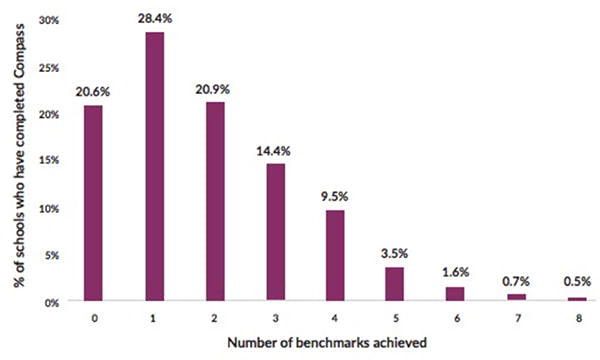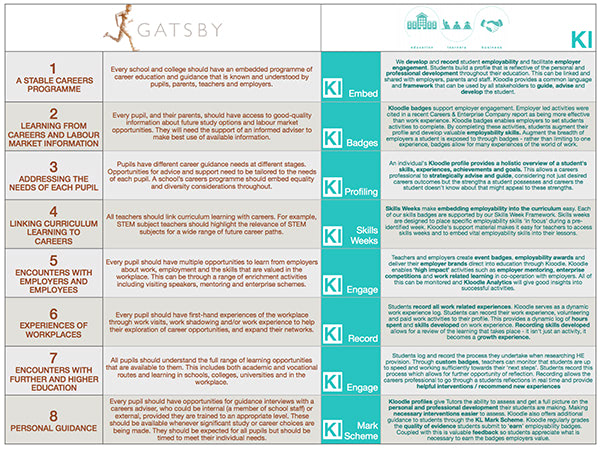I Say, Old Sport, Better Careers Advice is on the Way

“Whenever you feel like criticizing any one . . . just remember that all the people in this world haven’t had the advantages that you’ve had.” Nick’s father from The Great Gatsby
Jay Gatsby could have done with proper career advice. Ok, so he made a fortune after emerging from humble beginnings, but any adviser worth their salt would tell you, bootlegging always ends in tears.
Career guidance is crucial for social mobility. Young people make choices based on what they know and what they think is available to them. In short, their choices are ripe for misconception. After all, ‘you don’t know what you don’t know.’
A young person’s knowledge depends on the careers guidance received at college or at home and this is very inconsistent. It means that someone who goes to a school or college in a ‘cold spot’ or does not have access to ‘social capital’ at home will make poorer career choices. This is unfair.
If young people knew what careers options were available to them, then they would be able make more informed choices about which qualifications and routes to take. Instead, children from less advantaged backgrounds tend to make choices based on limited options, believing that family, gender or ethnicity are restricting factors, in turn, conforming to this false ideology.
So, what is Gatsby?
In 2013 Sir John Holman was commissioned by the Gatsby Foundation to research individuals are less likely to make the wrong choices at the beginning of their career preventing difficulties later down the track. It also means that with the right advice, young people can be aspirational and believe that they can achieve their dreams.
There are 8 benchmarks which constitute ‘good practice’ in career guidance. Schools and colleges should use the benchmarks when setting their careers programmes.
The Eight Gatsby Benchmarks of Good Career Guidance
- A stable careers programme
- Learning from career and labour market information
- Addressing the needs of each pupil
- Linking curriculum learning to careers
- Encounters with employers and employees
- Experiences of workplaces
- Encounters with further and higher education
- Personal guidance
Few schools meet the benchmarks
The table below shows the percentage of schools currently meeting Gatsby Benchmarks. As you can see, a little over 2% of schools and colleges hit more than 5 of the benchmarks. This illustrates the difficulties schools face when trying to implement these recommendations.

How can Kloodle help?
At Kloodle, we are finding that more and more colleges and schools across the UK are adopting the Gatsby Benchmarks; partly as a way of satisfying Ofsted that the career guidance offered by the institution is sufficient to meet their standards, but also because it offers a framework through which the organisation can help their students meet their potential.

Colleges which adopt Kloodle can meet the requirements of all of the benchmarks in one fell swoop. With Kloodle, you will be well on the way to raising your learners’ career aspirations, prompting social mobility and preparing them for the future world of work.
Confusion around Careers Advice
On our regular visits to schools and colleges up and down the country, careers departments have raised concerns about how up to date they are with an ever-shifting commercial marketplace. They have cited anxieties about how well learners are being prepared for a C21st workplace. Kloodle addresses this problem with its badge system.
Employers set their own criteria and employment related activities that are relevant to the roles in their organisation. If a role prioritises organisation and initiative, the badge will set this as a task. Badges reduce the confusion surrounding careers advice; information couldn’t be any more current or relevant—it comes straight from the horse’s mouth.
Common Mistakes
Linking curriculum to careers is the major struggle we’ve encountered in our work with schools and colleges. For decades, careers support has been strategically set up within education as an ‘add-on’. Core curriculum studies and exam preparation are viewed as paramount. Careers sessions and careers weeks are then ‘shoe-horned’ into the academic calendar to occupy ‘down-time’ or the time when exams have finished.
This in itself completely undermines the significance of employability skills to students. They are indoctrinated into believing skills are less important than exam results.
To employers, both are as fundamental as each another. The truly outstanding centres we’ve worked embed their employability programme into their curriculum. Skills are accrued on a daily basis inside and outside of the classroom.
At Kloodle we promote a ‘Skills Week’ programme which runs throughout the year, where all teaching staff get involved. Over time students gain knowledge and understanding that skills are inherent in every learning activity. They begin to rationalise and articulate how these skills transfer into professional environments. They understand that the process of working towards an exam is equally as valuable as the end result.
School and college leadership must incorporate positive outcomes for students at the heart of everything they do. For some it’s a test result, for others it’s the opportunity to be exposed to a professional role they might never have dreamt of. At Kloodle, embedding employability into the curriculum underpins everything we do. This is the single most important cultural change within education that leads to great results.
Neil Wolstenholme, Chairman, Kloodle
Book a “Getting to grips with Gatsby” webinar with Andrew Donnelly











Responses